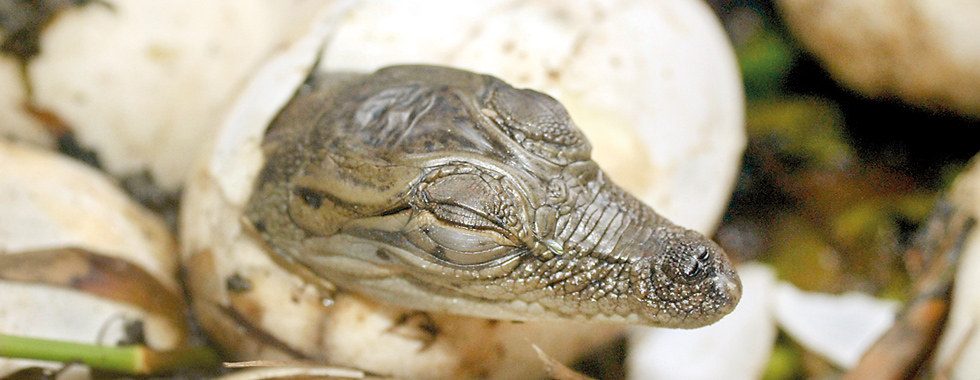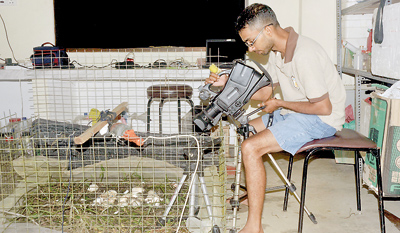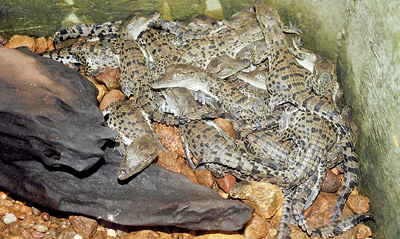News
Wildlife enthusiasts become foster parents to 20 crocs
Many are the negative stories reported regarding conservation of animals, especially that of reptiles. But proving this trend wrong, a group of wildlife enthusiasts hatched a clutch of crocodile eggs and they are now the proud foster parents of baby crocs.

Making an entry to the world: An egg hatches under the protective care of WCSG members
The group is none other than the Wildlife Conservation Society of Galle (WCSG).The happy ending had its beginnings about two months ago when a group of villagers who stumbled across a nest of crocodile eggs in the Kaluwamodara swamp in Beruwala handed over the eggs to the police who in turn handed them over to the Hikkaduwa range office of the Department of Wildlife Conservation.
The eggs eventually found a resting place at the WCSG centre in Hiyare, Galle, that runs a wildlife rescue programme. Next, followed plans to set up the ideal conditions necessary for the eggs to hatch. A female crocodile usually builds a nest, a mound consisting of vegetation, on the bank of any water hole.
The WCSG team wasted no time in building a similar safe environment. The decaying vegetation usually generates the heat required for the eggs to hatch. WCSG’s president, Madura de Silva said crocodile eggs required 80% moisture and a temperature of about 30 – 35 degrees Celsius and the temperature was constantly monitored.

Keeping a close eye on the eggs in the absence of motherly love (above) and (below) noting the temperature ideal for the eggs
He said unlike mammals, the sex of a crocodile is not determined by sex chromosomes but by the difference in temperature, with relatively low temperatures producing mainly females and high temperatures mainly males.
Crocodile mothers are known to be very protective of their eggs and it emerges out of the water often to keep an eye on the nest. At the slightest sound from the eggs the mother croc digs open the mound of vegetation so that the young ones have easy access once the eggs hatch.
In this instance, however, it was not the mother but the group of WCSG members who kept constant vigil and kept their ears open for the slightest sound from the nest. The baby crocs have an egg-tooth at the tip of their snouts that helps them to crack open the shells.
Most people are under the misconception that crocodile mothers eat their young. But what they do is take the young ones in their mouth while they are in the water to protect them from predators. The family remains in a group for several months under the close eye of the mother.

In this instance, WCSG members will take care of the 20 baby crocs, which are being fed live mangrove crab, fish and shrimp, for about three months before they are handed over to the Wildlife Dept. to be released to the wild,” Mr. de Silva said.

A handful: 20 baby crocs check out their environs

